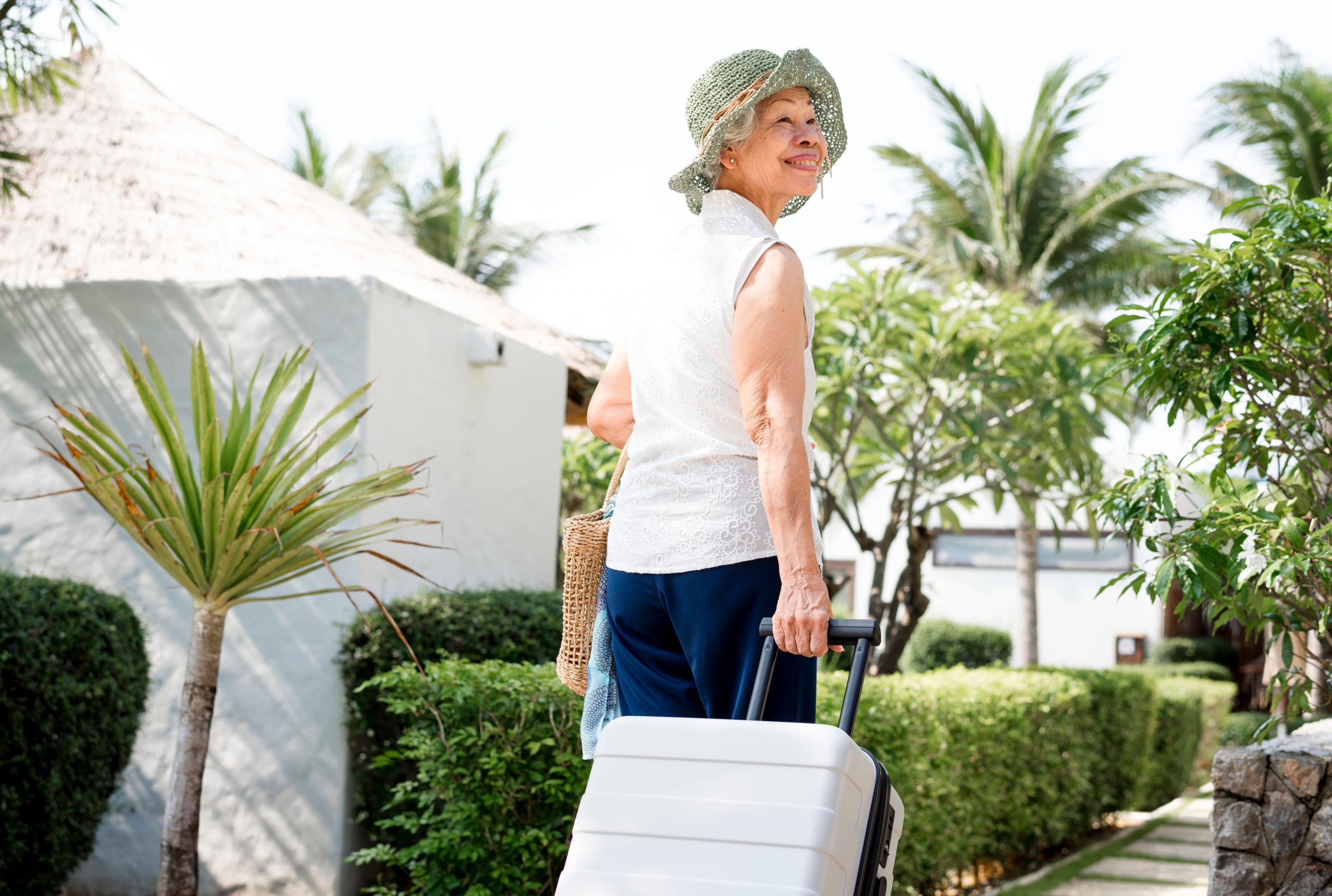Traveling solo can be one of the most rewarding and empowering experiences, especially for seniors looking to explore new destinations at their own pace. While it offers the freedom to design your itinerary and pursue your interests, solo travel also comes with unique challenges, especially when it comes to safety. Here are some essential tips and insights to help seniors travel solo with confidence, while staying safe and making the most of the adventure.
1. Plan Your Trip Thoroughly
A well-planned trip is the key to a smooth and enjoyable solo journey. Start by researching your destination thoroughly, focusing on safe neighborhoods, accessible transportation options, and recommended accommodations.
Tip: Choose senior-friendly destinations with good healthcare facilities and reliable public transportation. Opt for hotels or accommodations that are centrally located to minimize the need for long commutes in unfamiliar areas.
Insight: Many travel agencies offer packages designed specifically for senior solo travelers. These can be a great option if you’re looking for a structured trip with a focus on safety, accessibility, and comfort.
2. Stay Connected
One of the most important safety measures when traveling alone is staying connected with friends or family members. Keep someone you trust informed about your travel plans, including your itinerary, accommodation details, and any changes you make along the way.
Trick: Set up regular check-ins with a loved one. You can send a quick message each day to let them know you’re safe, and in case of an emergency, they’ll know how to reach you.
Tip: Carry a fully charged mobile phone at all times, and consider purchasing an international SIM card or portable Wi-Fi device if you’re traveling abroad. This will ensure you have access to the internet for maps, translations, and staying in touch.
3. Pack Smart and Light
When traveling solo, it’s important to pack efficiently. Carry only what you need and choose luggage that is easy to manage on your own. Consider using a small suitcase with wheels or a backpack, and avoid overpacking to reduce the physical strain.
Tip: Make sure to bring along a basic first-aid kit, your prescription medications, and copies of important documents, such as your passport, health insurance, and emergency contacts.
Insight: For added security, pack important documents and valuables in a money belt or a crossbody bag that can be worn close to your body. This reduces the risk of pickpocketing, especially in crowded areas.
4. Trust Your Instincts and Stay Aware
One of the most effective ways to stay safe while traveling solo is to trust your instincts and remain aware of your surroundings. If something doesn’t feel right, don’t hesitate to remove yourself from the situation. Be cautious about sharing too much personal information with strangers, and avoid walking alone at night in unfamiliar areas.
Trick: Blend in with locals by avoiding overly touristy behaviors, such as looking lost or consulting maps in public places. This can make you less of a target for scams or unwanted attention.
Tip: Keep your travel documents, money, and phone in different places—such as a hidden pocket or a secure bag—so that if one is stolen or lost, you still have access to the others.
5. Embrace Technology for Safety
Technology can be a great companion for solo travelers. In addition to navigation apps, there are plenty of travel apps that can enhance your experience and keep you safe.
Insight: Download travel apps such as Google Maps or Citymapper for reliable navigation, as well as translation apps like Google Translate if you’re traveling to a country where you don’t speak the language. Many of these apps work offline, making them useful even without internet access.
Tip: Consider using safety apps like bSafe or Life360, which allow you to share your location with trusted contacts in real-time. These apps can also send SOS alerts in case of emergencies.
6. Join Group Activities or Tours
While solo travel gives you the freedom to explore on your own, joining group activities or day tours can add structure and social interaction to your trip. Many destinations offer walking tours, cultural classes, and excursions that allow you to meet fellow travelers in a safe environment.
Tip: Look for senior-friendly tours that prioritize slower-paced itineraries and smaller group sizes. These can provide an excellent balance between independence and the security of traveling with others.
Insight: Social platforms and websites like Meetup or Airbnb Experiences are great for finding local events and activities that match your interests. These platforms allow you to connect with locals and fellow travelers in a safe, organized manner.
7. Keep Emergency Contacts Handy
In case of an emergency, having access to key contacts and information is crucial. Write down important phone numbers, such as local emergency services, your hotel, and your country’s embassy if you’re abroad.
Tip: Keep a list of emergency contacts in both your phone and on a piece of paper in your wallet or travel bag. That way, if your phone dies or is lost, you can still access the necessary information.
Insight: Many countries have travel assistance programs or senior hotlines that can help you navigate emergencies abroad. Make a note of these before you travel.
